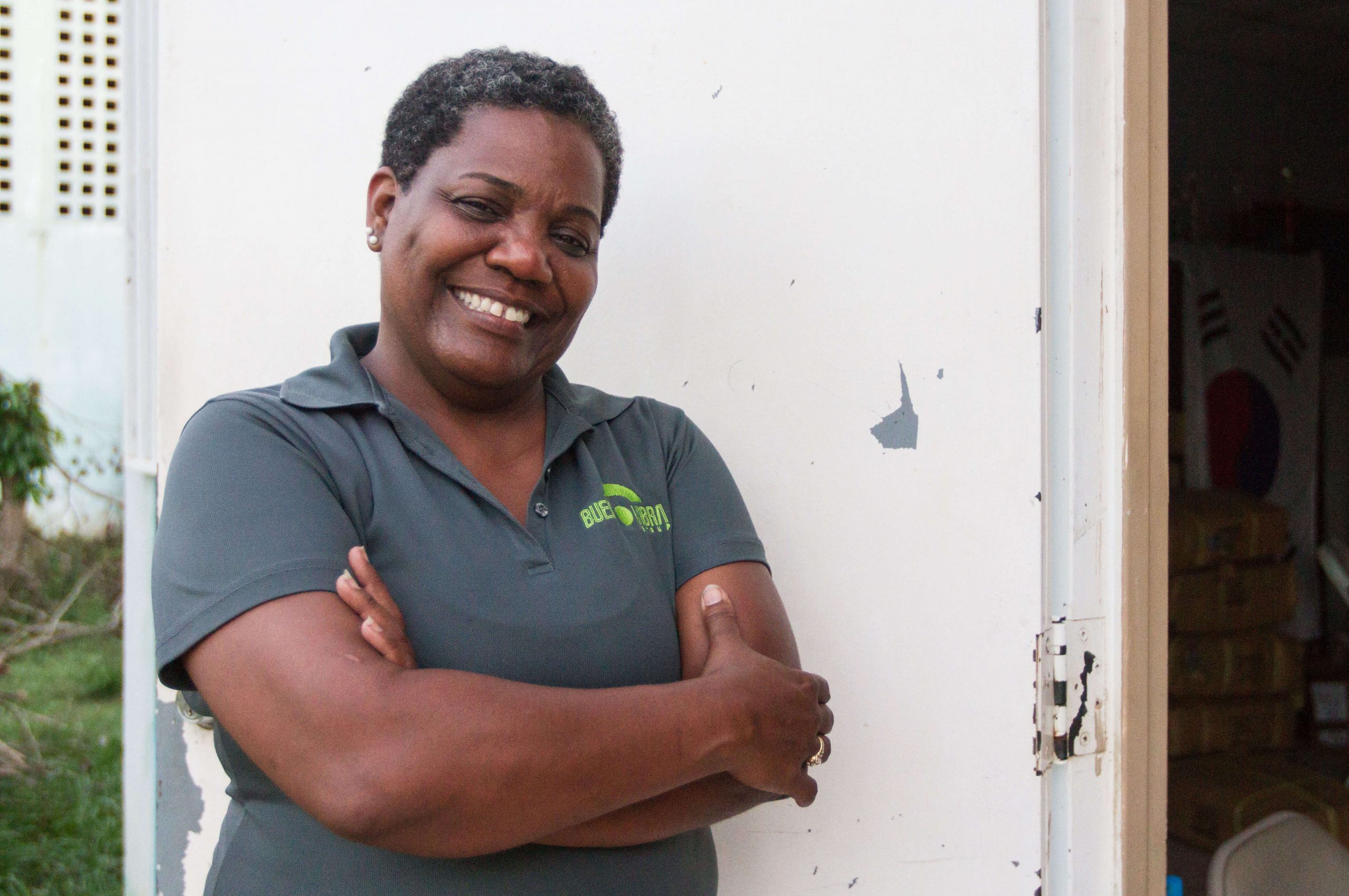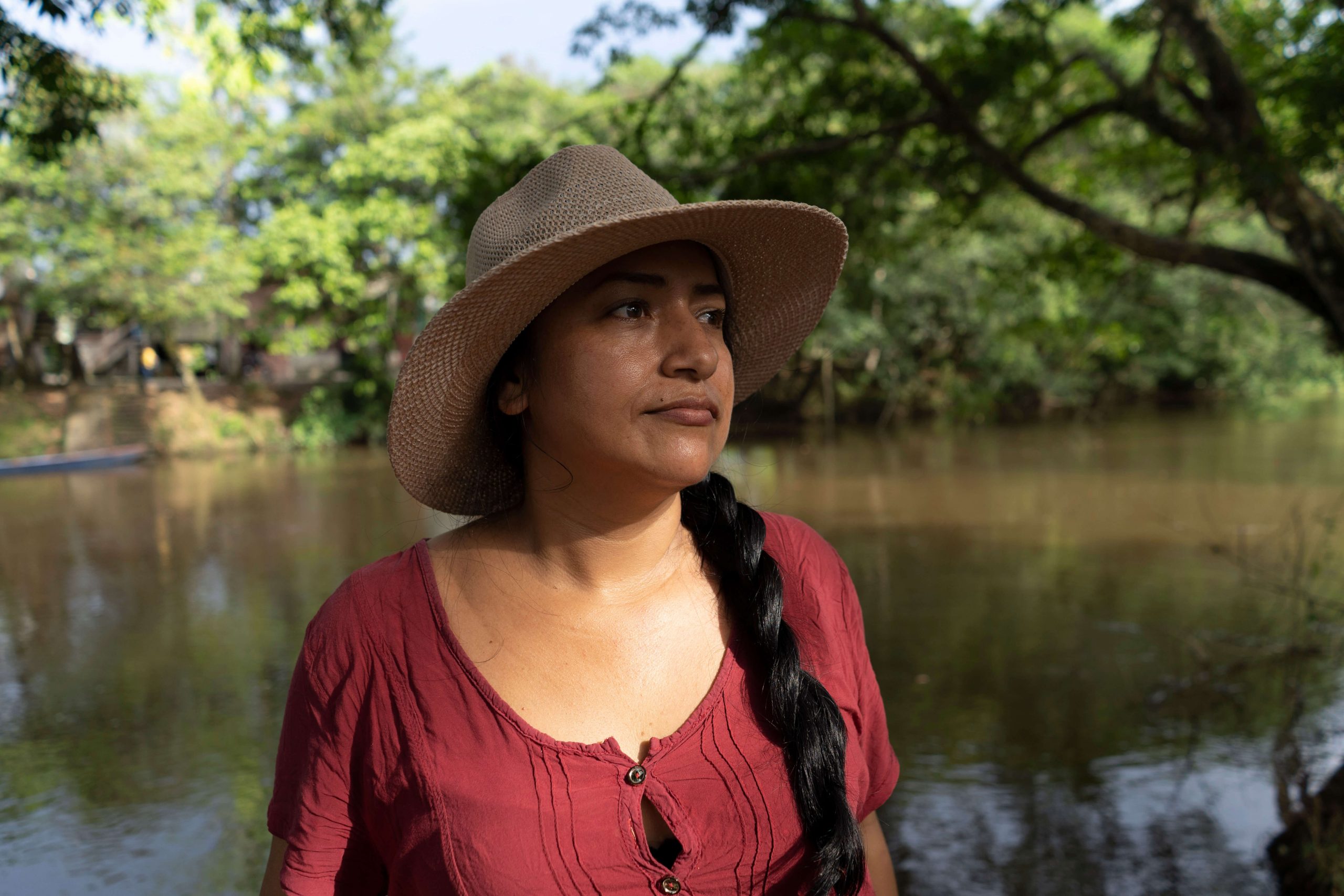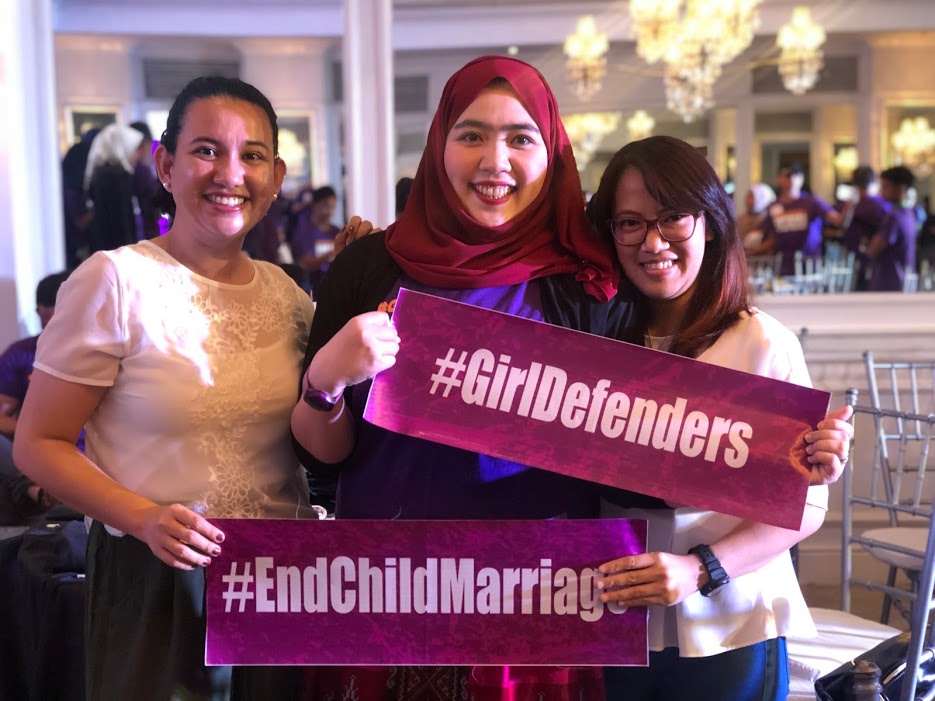International Women’s Day – women lifting each other up
International Women’s Day is a time when we stand up and stand together for women’s rights around the world.
Women are the world’s powerhouses: they produce most of the world's food, are over-represented in precarious jobs that drive economic growth and do the vast majority of unpaid care work in their homes. Yet they make up the majority of the world’s poor, have fewer rights and have less control over decisions that shape their lives. But things can be different. Poverty isn't inevitable. If we fight inequality today, we can build a more just, sustainable future. And every day, women's organizations and women's rights advocates are doing exactly that: building a better future now.
Meet and be inspired by some of the incredible women who are on the front lines fighting for women’s rights.
Responding to COVID-19 // Carmen Villanueva

Women have kept the world running during this pandemic, picking up a greater workloads in clinics, in homes, and at the workplace. They’ve also been fearless advocates for each other. For Carmen Villanueva, community is her passion and in her hometown of San Juan, Puerto Rico, she doesn’t take no for an answer. Carmen works with Oxfam to bring emergency food to her community, connect people with health services, and improve COVID-19 prevention and control.
“Today more than ever, I feel committed to showing solidarity with families that have no way to bring food to their table for their children,” she says. “Especially with women who are heads of families, like me.”
"Carmen believes that justice is possible,” says María Concepción Díaz, who manages Oxfam’s programs in Puerto Rico. “That is what makes her an unstoppable force.”
Standing up for women at work // Kalpona Akter
While we are in the midst of the most significant global public health crisis of our lifetime, the veil is being lifted on an economic system that rewards the wealthy and punishes the poor. This could not ring more true for the women who make our clothes.
Labour rights activist Kalpona Akter has been fighting against the exploitation of garment workers in Bangladesh who are not being payed for work completed or are facing massive layoffs.
"If factories and brands do not take responsibility, these workers, if they do not die from this virus, they will die from hunger,” says Akter. “We are not asking for [brands] to give charity, we are asking them to pay our workers their wages so the workers can buy food and feed themselves.”

Confronting climate change // Tania Hernández Tellez

In Colombia, local politics is about more than planning decisions and wastewater – it is literally a matter of life or death. Tania Hernández Tellez, 41,is willing to sacrifice everything to play her part.
“In this area, women are traditionally the ones who are connected to the land, family and nature. That is why it is important for us to take care of the Amazon and protect it from the mining industry.”
Tania is part of the Rural Women's Association of Peacebuilders which works closely with Oxfam. Here, they exchange experiences and build alliances to stand stronger in their common fight for getting more women involved in Colombia's fragile peace process.
Fighting to end child marriage // Senator Risa Hontiveros

FACT: A UNICEF study said 15 per cent of Filipino girls are married before their 18th birthday, with 2 per cent married before 15 years old.
“Marriage should be for adults, at the proper time, and out of free will.”
It seems like an obvious statement to make around marriage. But when you consider a country like the Philippines, which currently ranks 12th highest in the world as it relates to child marriage with 726,000 child brides, that statement by Filipino Senator Risa Hontiveros packs a little more punch. And it’s why the senator, along with several women’s rights organizations and Oxfam Pilipinas, have been working together for several years to make the proposed Girls Not Brides Act a law. Read the full story here.

